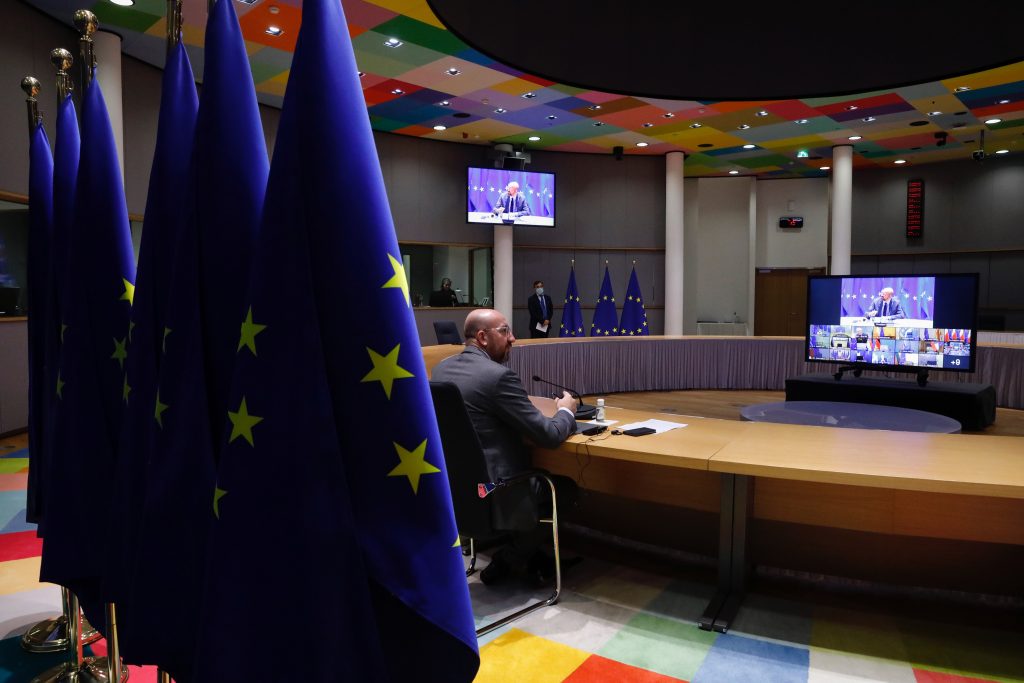
25/05/2021
EU Insight 21 May, 2021
Brussels, 21 May 2021
POLITICAL AGREEMENT OVER COVID CERTIFICATE SETS TO FACILITATE NON-ESSENTIAL TRAVEL
Hopes for a summer without severe travel restrictions were boosted this week, after the European Parliament and the Council reached a provisional political agreement on the Regulation for an EU Digital COVID Certificate. The Certificate, which aims to facilitate safe travel within the EU, is well on track to be ready by end of June. The outlook is positive for foreign travellers too, as the Council amended its recommendation on the temporary restriction on non-essential travel into the EU. The decision introduces waivers for vaccinated persons and eases the criteria to lift restrictions for third countries, while setting out an emergency brake mechanism to deal with possible new variants of the virus.
COMMISSION PLANS FOR A NEW EU TAX SYSTEM
The Commission adopted the Communication on Business Taxation for the 21st Century which aims to reduce administrative burdens, remove tax obstacles, and foster a more business-friendly environment. The document sets out a long- and short-term fiscal vision to support Europe’s recovery and form the basis for an efficient tax system capable of ensuring adequate public revenues. The Commission intends to present a new single corporate tax rulebook in 2023, including common rules for determining the tax base, and a formula for the allocation of profits between Member States. Before that, the Commission will take actions to neutralise the use of shell entities for tax purposes, and to require annual publication of effective corporate tax rates for large companies.
NEW BLUE CARD SCHEME OUTLINES RULES TO ATTRACT HIGHLY SKILLED WORKERS INTO EU
The Parliament and the Council agreed on new rules for the entry and residence of highly skilled workers from outside the EU under the revised Blue Card Directive. The new scheme will introduce rules aimed at attracting highly skilled workers to the EU, including more flexible admission conditions, enhanced rights, and the possibility to move and work more easily between EU Member States. The Parliament and the Council will now need to formally adopt the text of the EU Blue Card Directive. Once the Directive is adopted, Member States will have two years to transpose the rules into national law.
NEW BLUE ECONOMY AGENDA TO ENSURE A GREEN AND INCLUSIVE PANDEMIC RECOVERY
The European Commission proposed a new approach for a “sustainable blue economy” in the EU targeting those industries and sectors related to oceans, seas, and coasts. The agenda aims to reach the objectives of, among others, climate neutrality and zero pollution for the blue economy, the switch to a circular economy and a preservation of biodiversity. The Commission underlined that a sustainable blue economy is essential to achieve the objectives of the European Green Deal and ensuring a green and inclusive recovery. The Commission will also continue creating the conditions for a sustainable blue economy internationally following the international ocean governance agenda.
OPTIMISTIC ECONOMIC OUTLOOK SHOWS EU ECONOMIES TO RETURN TO PRE-CRISIS LEVELS BEFORE 2023
Last week the Commission presented the Spring 2021 Economic Forecast, which projects that the EU economy will expand by 4.2% in 2021 and by 4.4% in 2022. All EU economies should return to pre-crisis levels by the end of 2022, although growth rates – driven by private consumption, investment, and rising demand for EU exports – will largely vary. And while public investment is set to reach its highest level in more than a decade in 2022, recent public support measures increased levels of public debt: almost all Member States are forecast to run a deficit of more than 3% of GDP in 2021, with 2021’s debt-to-GDP ratio set to peak at 94% across the EU.
COMING UP NEXT WEEK
- 24-25 May: Special meeting of the European Council. On the agenda: State of play of the coordination of the EU’s response on COVID – 19, EU’s fight against climate change, Strategic Debate on Russia, discussion on EU-UK Relations following the entry of the EU-UK Trade and Cooperation Agreement (TCA).
- 26-27 May: Agriculture and Fisheries Council. On the agenda: Common Agricultural Policy (CAP) reform package, studies on agri-food techniques, organic farming and the EU’s priorities for the UN Food Systems Summit.
- 27 May: EU-Japan Summit via video conference. On the agenda: EU-Japan enhanced cooperation and joint leadership in multilateral fora, Bilateral relations, Foreign and Security Policy.
- 27 May: Informal meeting of foreign affairs ministers.
- 27-28 May: Competitiveness Council. On the agenda: Digital Services Package, EU Industrial strategy, Future of European Tourism, Data Technologies for better law-making, European High Performance Computing Joint Undertaking, Deepening the European Research Area and improving researchers’ careers.
- 28 May: Informal meeting of defence ministers.
Karl Isaksson, Managing Partner Brussels, Kreab
____________________________________________________________________
Kreab • Tel: +32 2 737 6900 • karl.isaksson@kreab.com • www.kreab.com/brussels • Twitter: @KreabEU
Contact us
- Bangalore
- Barcelona
- Beijing
- Berlin
- Bogota
- Brussels
- Bucharest
- Budapest
- Buenos Aires
- Chennai
- Copenhagen
- Frankfurt
- Genoa
- Helsinki
- Hong Kong
- Hyderabad
- Jakarta
- Lima
- Lisbon
- London
- Luanda
- Madrid
- Maputo
- Mexico City
- Milan
- Mumbai
- New Delhi
- Oslo
- Panama
- Quito
- Rome
- Santa Cruz de la Sierra
- Santiago de Chile
- Stockholm
- Stuttgart
- Tokyo
- Valencia
- Washington DC
